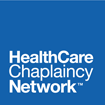Delivery and Continuity of Care for Chaplaincy and Spiritual Care
Course Author: The Rev. Sue Wintz, M.Div., BCC
This course, Delivery and Continuity of Care for Chaplaincy and Spiritual Care will guide the learner through an overview of health care delivery and continuity of care with information, activities, and resources to increase understanding of the United States system. It will also encourage the learner to consider how chaplaincy and spiritual care is, is not, or can be delivered and continued throughout a person’s experience and health care journey. Learners will be provided with opportunities to articulate their new knowledge and consider practical ways to integrate it into their scope of practice, provision of care, best practices, and protocols as well as for consideration for quality improvement and research projects.
By the end of this course the learner will be able to:
- Describe the components of the health care delivery system in the United States.
- Identify the factors that impact continuity of care including barriers, challenges, and opportunities.
- Understand the elements of patient centered care.
- Describe the components of multidisciplinary teamwork and the contributions of chaplains.
- Identify and execute best practices for improving delivery and continuity of chaplaincy care.
Course Outline
- Health Care Delivery in the United States
- Main Characteristics of the U.S. Health Care System
- S. Health Care Delivery Subsystems
- Barriers in Health Care Delivery
- Continuity of Care 6. Patient-Centered Care
- Working with the Interdisciplinary Team
- Chaplains and Delivery of Care
- Summary
- References
Number of Continuing Education Hours: 25
Credit towards Board Certification Requirements: 1
Aligns with the following Quality Indicators in What is Quality Spiritual Care in Health Care and How Do You Measure It? (HCCN. 2016).
- Structural Indicator 1.A. Chaplains as certified or credentialed spiritual care professional(s) are provided proportionate to the size and complexity of the unit served and officially recognized as integrated/embedded members of the clinical staff.
- Structural Indicator 1.D. Professional education and development programs in spiritual care are provided for all disciplines on the team to improve their provision of generalist spiritual care.
- Process Indicator 2.B. All clients are offered the opportunity to have a discussion of religious/spiritual concerns.
- Process Indicator 2.C. An assessment of religious, spiritual, and existential concerns using a structured instrument is developed and documented, and the information obtained from the assessment is integrated into the overall care plan.
- Process Indicator 2.D. Spiritual, religious, cultural practices are facilitated for clients, the people important to them, and staff.
- Process Indicator 2.E. Families are offered the opportunity to discuss spiritual issues during goals of care conferences.
- Process Indicator 2.G. End of life and Bereavement Care is provided as appropriate to the population served.

